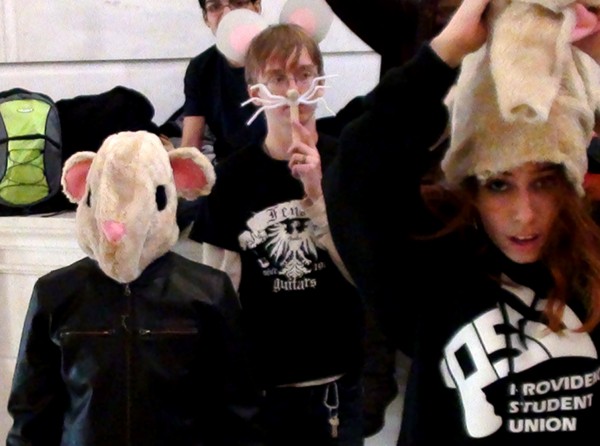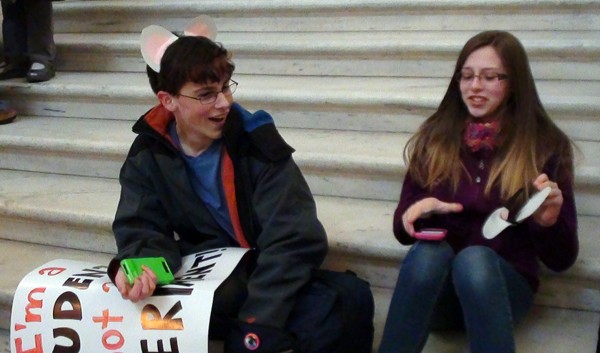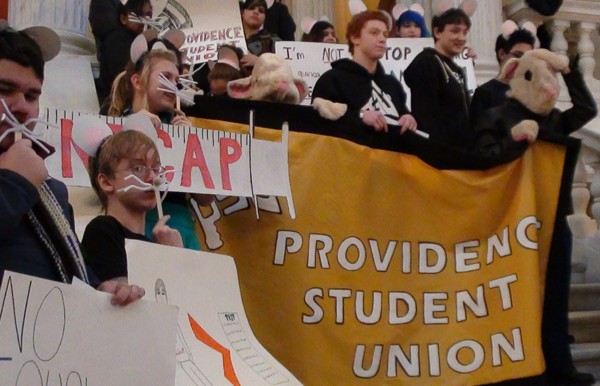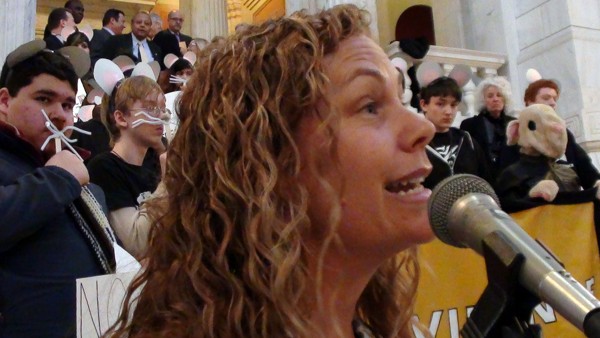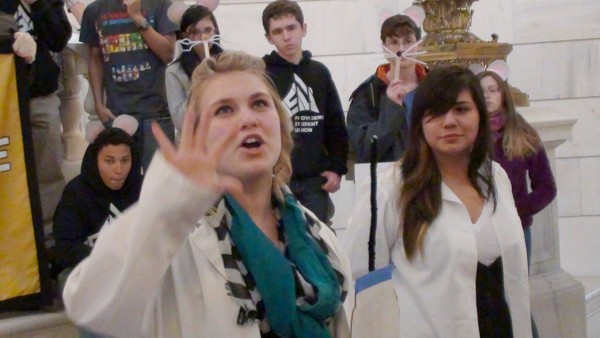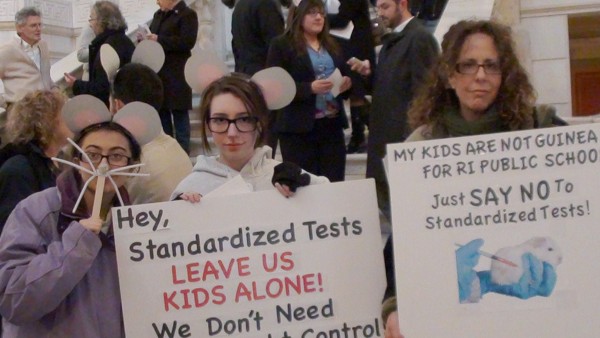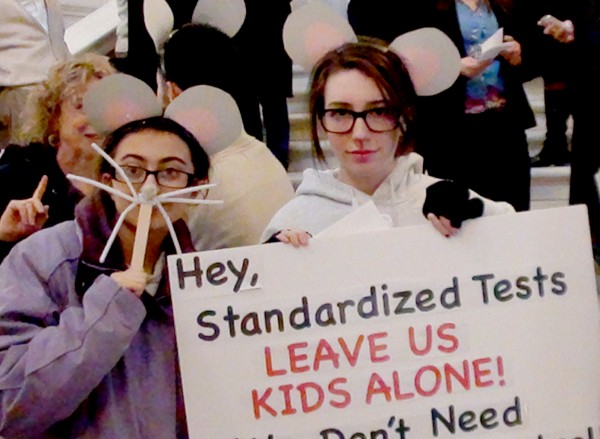 Just a week before the 44th annual gathering of the global elite at World Economic Forum in Davos, Switzerland, Oxford, England-based Oxfam International released a scathing report claiming that global wealth rests in the hands of just a few very rich people.
Just a week before the 44th annual gathering of the global elite at World Economic Forum in Davos, Switzerland, Oxford, England-based Oxfam International released a scathing report claiming that global wealth rests in the hands of just a few very rich people.
According to the report released on Jan. 20, co-authored by Ricardo Fuentes-Nieva, Head of Research, Oxfam Great Britain and Nicholas Galasso, Research and Policy Advisor, Oxfam America, 85 of the wealthiest people own the same amount of wealth as the bottom half of the world’s population.
Widening Income Gap Between Wealthy and Poor
Oxfam’s 31 page report, “Working for the Few,” warns that almost half of the world’s wealth concentrated in just one percent of the population, is a real threat to inclusive political and economic systems, and compounds other economic inequalities – such as those between women and men. The authors say, left unchecked, political institutions are undermined and governments overwhelmingly serve the interests of economic elites – to the detriment of the poor and middle class.
Today the gap between the rich and poor has become wider, with the wealth of the one percent richest people in the world amounting to $110 trillion, adds the report, around 65 times the total wealth of the bottom half of the world’s population. In the United States, the wealthiest one percent captured 95 percent of post-financial crisis growth since 2009, while the bottom 90 percent became poorer.
“Without a concerted effort to tackle inequality, the cascade of privilege and of disadvantage will continue down the generations,” warns Oxfam’s Executive Director, Winnie Byanyima, in her statement announcing the release of her group’s report. She leads the world-wide development organization comprised of 17 organizations working in 90 countries to find solutions to poverty and related injustice around the world.
Byanyima, a grass-roots activist, human rights advocate and a world recognized expert on women’s rights, who plans to attend the Davos meeting, observes, “It is staggering that in the 21st Century, half of the world’s population owns no more than tiny elite whose numbers could all sit comfortably in a single train carriage.”
“We cannot hope to win the fight against poverty without tackling inequality. Widening inequality is creating a vicious circle where wealth and power are increasingly concentrated in the hands of a few, leaving the rest of us to fight over crumbs from the top table,” says Bryanyima.
Bryanyima adds, “In developed and developing countries alike, we are increasingly living in a world where the lowest tax rates, the best health and education and the opportunity to influence are being given not just to the rich but also to their children.”
“Without a concerted effort to tackle inequality, the cascade of privilege and of disadvantage will continue down the generations,” states Bryanyima, noting that “We will soon live in a world where equality of opportunity is just a dream.”
Specific policies have widened the income gap between the rich and poor over the last decades, including financial deregulation, tax havens and secrecy, anti-competitive business practice, lower tax rates on high incomes and investments and cuts or underinvestment in public services for the majority. For instance, since the late 1970s, tax rates for the richest have fallen in 29 of the 30 countries for which data are available. In these places the rich not only get more money but also pay less tax on it.
Oxfam’s report calls on those gathered at this week’s World Economic Forum to take tackle inequity by cracking down on financial secrecy and tax dodging, including investing in universal education and healthcare; demand a living wage in all companies, and agreeing a global goal to end extreme inequality in every country.
Inequity in Our Back Yard, Too
Commenting on Oxfam’s report release, Robert B. Reich, former Secretary of Labor under President Bill Clinton who now serves as Chancellor’s Professor of Public Policy at the Goldman School of Public Policy at the University of California, Berkeley, notes that inequality in the United State is not “that far off” from other countries. “Here, the 400 richest Americans have more wealth than the bottom 150 million Americans put together. We’re getting close to a tipping point where inequality undermines our economy (because the vast middle class doesn’t have the purchasing power to keep the economy going), hurts our democracy (because a handful of extremely rich individuals can control politics), and causes most people to feel the dice are loaded against them, he says.
Reich’s award-winning documentary “Inequality for All” — now out on iTunes, DVD, and On Demand — explains the roots of inequality, in the U.S. and around the world. For details, go to http://www.inequalityforall.com.
Kate Brewster, Executive Director of Rhode Island’s The Economic Progress Institute, notes that Oxfam’s report puts the growing problem of inequality on the world stage. “As the experts point out, inequality is not inevitable, but a man made problem that can be tackled with policies that reward everyone for hard work, not just a few,” she says.
“Rhode Island has not escaped this disturbing trend,” states Brewster. According to a report issued by the Center on Budget and Policy Priorities, the Ocean State experienced the 9th largest increase in income inequality in the country between the late 1970s and mid-2000s. During this time the income of the top fifth rose by 99 percent while the bottom fifth grew by only 12 percent, she says.
Legislative Fixes to Reduce Income Gap
Brewster says there are two “two concrete policies” that the Rhode Island General Assembly could enact this legislative session that would immediately boost the income of low-income Rhode Islanders and begin to reverse this trend, specifically increasing the state’s minimum wage and increasing the refund available through the state’s Earned Income Tax Credit. “The latter would not only boost the income of low-wage workers but also bring more equity to a tax structure that has provided significant tax breaks to wealthy individuals and businesses for years,” she says.
Advocate Susan Sweet, a former state official and lobbyist for nonprofit groups, notes that while Rhode Island and the nation don’t have an overwhelming majority of citizens suffering the worst extremes of poverty such as starvation, homelessness and societal abandonment that exists in some other countries, we have our share. We also have a large and expanding underclass of counter culture and underground economy that serves to hurt the cohesiveness of society,” says the Rumford resident.
Sweet worries about the income gap between the poor and wealthy that will happen in years to come because of state policies. “The state took millions away from retired people who are receiving an average of $25,000 a year in their state pension and are in their seventies on average. The state gambled on the Studio 38 boondoggle, sold these risky bonds to unknown parties, and want to pay these gambling debts back to the investors because they have a ‘moral obligation’ to do so. Where is the moral obligation to those who performed their responsibilities by working for the state for many years with the promise of a secure retirement?” she says.
And what does she expect to see coming out of the General Assembly? “This year we will hear rhetoric to raise the absurdly low minimum wage in the nation and in the state, but not enough to give workers a decent living wage; we will hear promises to improve education, while students that have tried to achieve under great odds will be denied high school diplomas while the educational infrastructure remains in place and unchanging; we will be assured that the key to R.I.’s unyielding high unemployment rate has been found – again; and we will continue on the path of inequality.”
Oak Hill resident, Lisa Roseman Beade, an academic tutor who is been active in Progressive causes, says the U.S. has the widest income gap of any developing nation. “’Trickle down economics’ has turned into “vacuum upwards economics”. We need fair wages and fair and equitable taxation rates to circulate the money. That’s what puts people to work and will reduce the widening income gap between the nation’s wealthy and poor. Instead, workers, who have been breaking the bar in productivity year after year, now receive only 1 percent of the record breaking profits.”
Beade calls for keeping corporate dollars out of politics and supports the creation of a single payer healthcare system that would make healthcare a civil right.
She believes that change will only come when “we all stop the scape-goating teachers and workers and public employees and demand that we all have good wages, good benefits and good pensions and by restoring state levels to those pre-1998. If lower taxes create jobs, and taxes have never been lower…where are the jobs?”
“A vibrant, safe and livable community with good community services can only come if everyone earns enough and everyone pays their fair share of taxes. Let’s make paying taxes patriotic again,” says Beade.
A Final Note…
It’s time to hammer out a comprehensive legislative fix to reducing the wide income gap between the Ocean State’s wealthy and poor. Let those declared candidates for Governor come out with detailed briefing papers, unveiling their comprehensive approach to enable Rhode Islanders to finally make a living wage. That is tell the voters how you will close the income gap between the state’s have and have nots. Let the debate begin.
Herb Weiss, LRI ’12, is a writer who covers aging, health care, medical issues and Rhode Island’s political scene.
 Here are a few words you won’t see in the above graphic depiction of her speech, which I think belong in any talk about the state of education in Rhode Island:
Here are a few words you won’t see in the above graphic depiction of her speech, which I think belong in any talk about the state of education in Rhode Island:

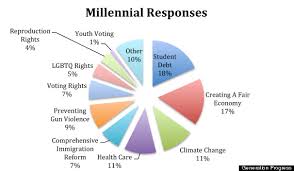
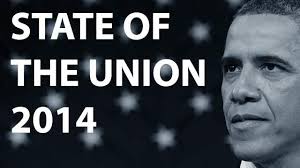


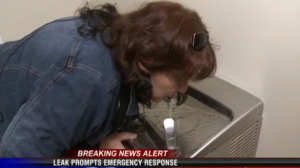
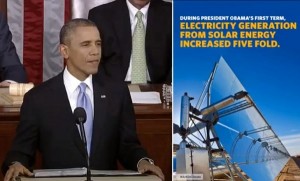




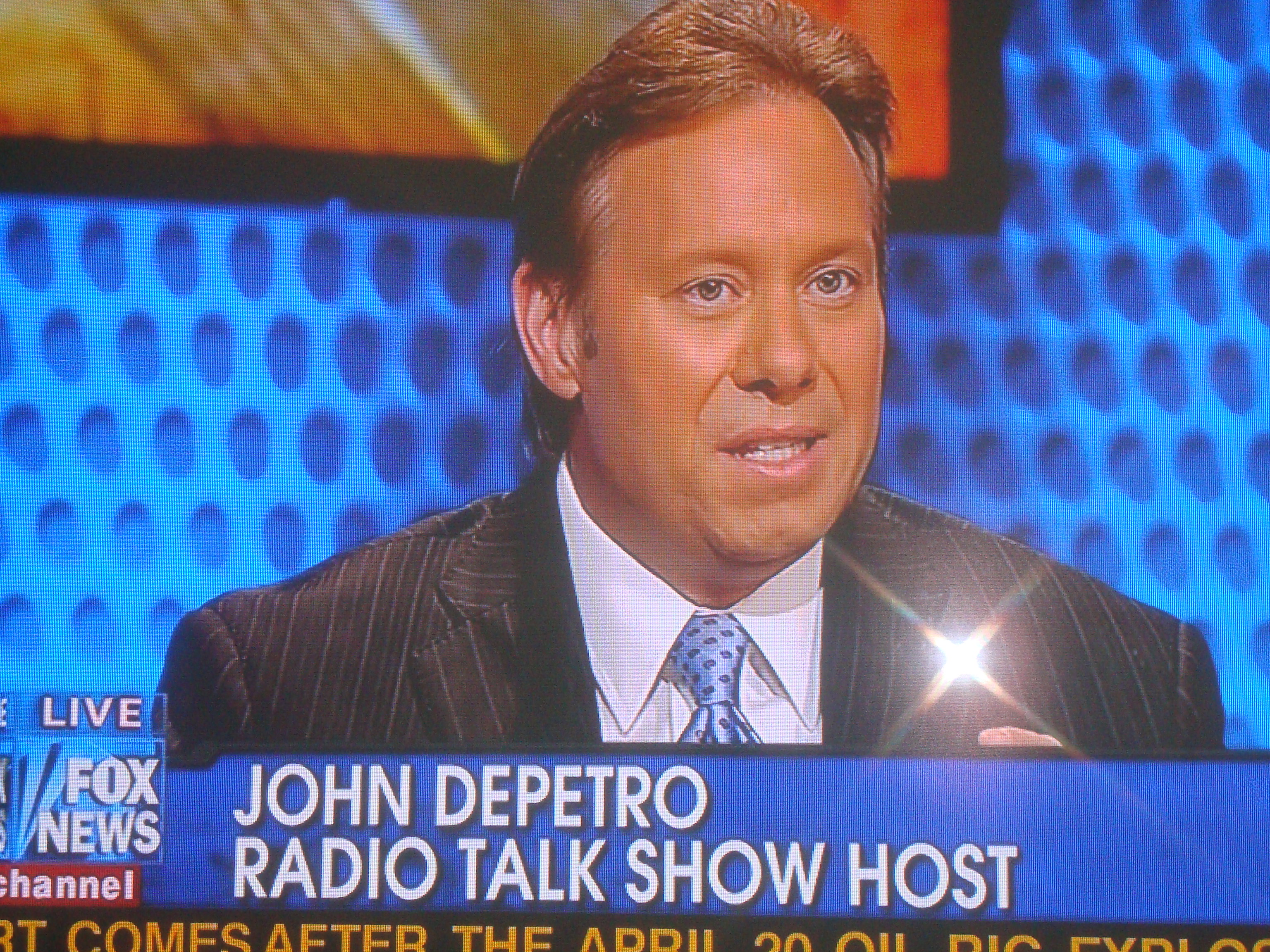

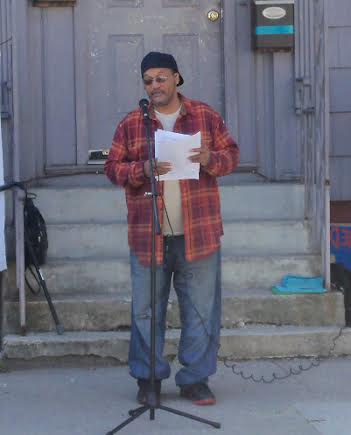
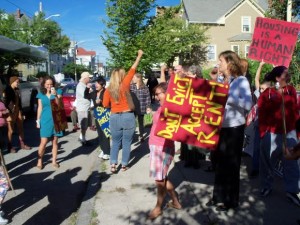
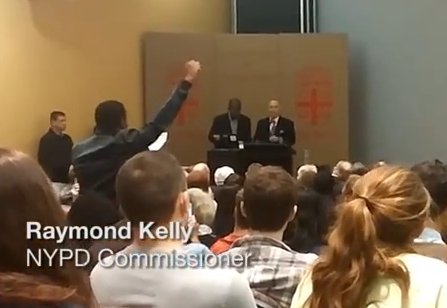


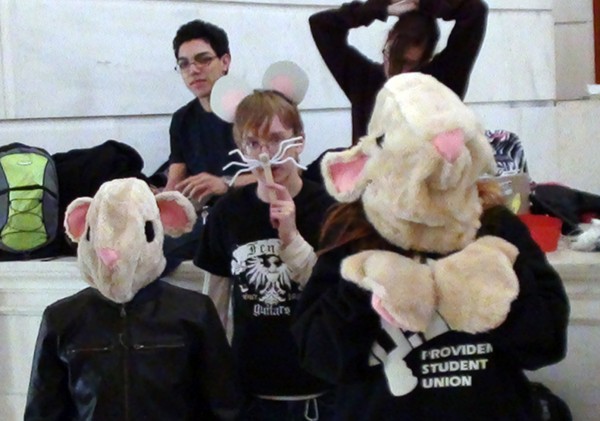 Mining a tradition that stretches back to Athenian democracy and probably much earlier, members of the Providence Student Union (PSU) engaged in political theater to protest the “the ill-conceived experiment” of “Rhode Island’s new high-stakes testing graduation requirement” yesterday in the State House rotunda.
Mining a tradition that stretches back to Athenian democracy and probably much earlier, members of the Providence Student Union (PSU) engaged in political theater to protest the “the ill-conceived experiment” of “Rhode Island’s new high-stakes testing graduation requirement” yesterday in the State House rotunda.


